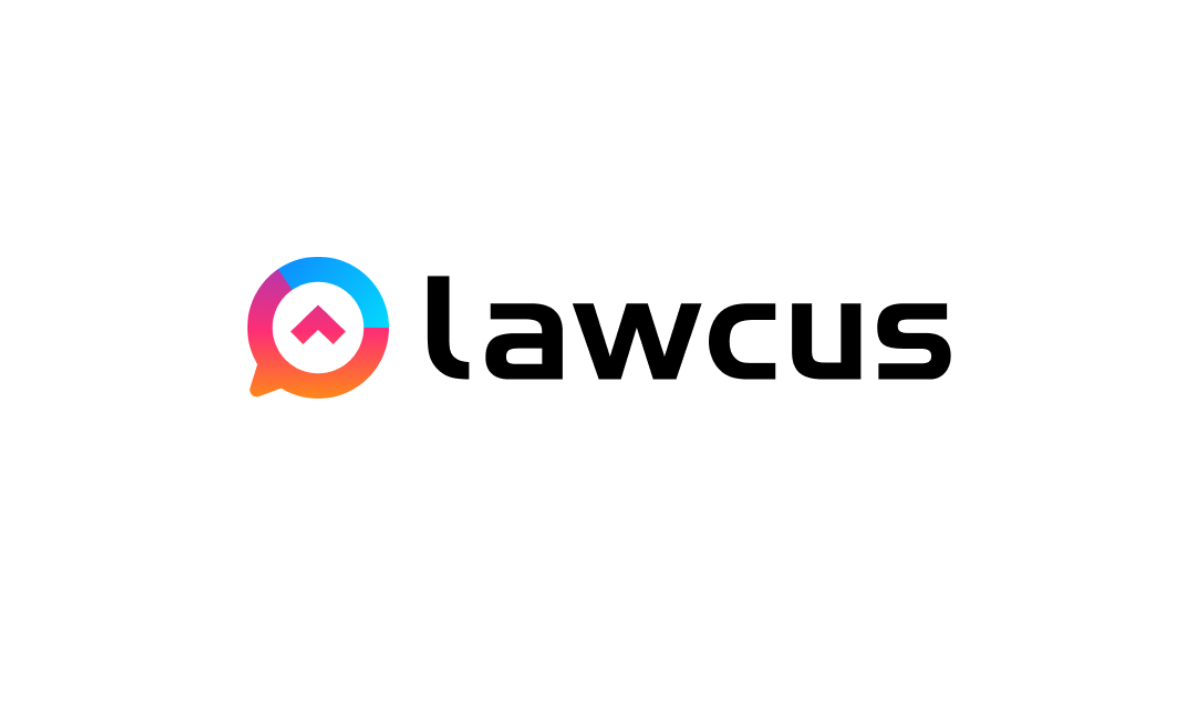Discover Lawcus, a legal practice management software, that brings a lot of features and tools to make things easier for lawyers and law firms

Technology helps professionals do their job more efficiently. It gives them more time to do the more important projects, rather than be overwhelmed with repetitive administrative tasks.
In the legal profession, we now have practice management software to help lawyers and law firms with their work systems. One of these is Lawcus, whose features range from client management and document organization to billing and accounting.
This article is for lawyers and law firms who want to see if Lawcus is the perfect practice management software for them.
What is Lawcus?
Lawcus is a legal practice management software that:
- organizes workflow and matter management
- automates repetitive processes
- visualizes practice management using kanban boards
- assists with client intake, billing, and accounting

Who can use Lawcus?
Users of Lawcus can range from lawyers doing solo practice, to law firms of different sizes – whether it be small, mid, or large firms.
This practice management software can also be used by in-house legal teams of companies and corporations.
There are other practice areas that it can be used for:
- banking and finance
- bankruptcy
- cyber law
- estate planning
- family and probate
- government law
- intellectual property
- labor and employment
- personal injury
- real estate
This video shows how Lawcus works and what its interface looks like:
For insights on improving workflows and overall management, bookmark our page on Practice Management.
Key features and capabilities
Lawcus has three key features to help manage your day-to-day activities:
- Practice Management
- Client Intake and Customer Relationship Management (CRM)
- Billing and Accounting
The availability of these features will vary according to each subscription plan and its pricing.
Practice Management
Lawcus can help you manage client matters, documents, and tasks through its Practice Management feature. This feature can be broken down into the following:
Case Management
You can get an overview of the tasks assigned to you and your co-workers through Lawcus’ kanban-style pipelines. You can customize this or switch to the traditional view if you prefer.
It has a matter-centric chat where you and your colleagues can communicate with each other. It prevents clogging other channels with different matters, which may confuse teammates most of the time.
You can also view summary reports within the case management feature. You’ll get an overview of a client’s trust balance, outstanding balance, and un-invoiced work. These details may also be used when creating invoices for your clients.
Other highlights of the case management feature include:
- full-text search tool to include all text fields and custom fields
- custom fields
- matter numbering based on the users’ numbering scheme
- real-time notifications for any activity
- custom matter and contact tags set up
Client Portal
The software has a customizable Client Portal that helps you communicate with clients and exchange documents.
Events can also be set up in the Client Portal to set reminders for court hearings, meetings, and tasks.
Document Automation
You can create, edit, and store documents in just one place – through the Document Preparation Software – for easier access and organization.
Through the Workflow Automation Tool, documents can be automated from pre-saved templates. Documents can be generated more quickly, and errors are prevented.
With the Legal Document Software, you can create default folders that can be customed to appear in different matter types.
Task Management
Lawcus also works as a Legal Task Management Software, which helps delegate tasks, set deadlines for these tasks, and keep track of the work in progress.
It does all of these through the following tools:
- set up tasks that may be automated to repeat on a daily, monthly, or yearly
- customize tasks whose deadlines are dependent on the completion of a previous task
- put multiple assignees on a similar task to promote collaboration
User Roles and Permission
You can create new categories of user roles with different or similar sets of permissions. This will help align the software with the roles of users within the firm.
According to how it is defined by the administrator, each role has a definite number of rights and access to each functionality. Permission levels may also be set up so that lawyers in the firm can only see the matters they’re assigned to.
Client Intake and CRM
Client intake and CRM tools help in the relationship between lawyers and clients, starting from the initial engagement until case resolution.
The appointment scheduler software can be used to create appointments, set deadlines, and receive daily reminders. This scheduler can also be synced with a user’s Google, Office 365, and Outlook calendars.
Canned responses
Canned responses or quick replies can be set up to follow up clients on any task or matter. This is available either as a text or email.
You can also use Lawcus’ free email and newsletter templates to customize the content to be sent to clients.
With the Drag and Drop feature, you can send HTML emails using pre-saved templates when responding to clients.
Automated client automations
After setting up the canned responses, email automations can now be set up using pre-set triggers through its Email Automation Software.
Aside from syncing calendars from other apps, you can also integrate your other emails into a single, consolidated email within Lawcus.
You can use Email Marketing Software not just to communicate with clients, but also for marketing purposes. For example, drip email campaigns can be automated and set up to keep communications open with existing clients.
E-Signature Software
The E-Signature Software allows you and your clients to use e-signatures when signing legal documents. This is to make transactions faster and easier.
You can also send requests for clients’ e-signature through the software’s CRM tools.
Billing and Accounting
Lawcus helps with the financial aspects of running a law firm’s operations with the help of these features:
Trust Accounting Software:
-
- manage clients’ funds in their trust accounts
- separate clients’ trust funds from the law firm’s operating funds
- add multiple operating and trust accounts, and even transfer funds between these accounts
- request funds in trust, upfront or escrow deposits, and trust fund top-ups from clients via Trust Requests
Analytics and Dashboard:
-
- get insights on every interaction and all potential leads coming into the firm to help in decision-making processes
- customize reports to reflect the firm’s intake cycle, income sources, and other metrics set by the firm
- view Work in Progress (WIP) panel which shows un-invoiced work, or invoiced work but was not yet marked as Sent to Client
Reports:
-
- generate Not Hired reports which shows reasons for leads not being hired, the leads lost for each reason, and its comparative percentage with other reasons
- access Top Referrers Report for data on the top referrers, the number of leads referred, and its percentage compared to the total referred leads
- check Pipeline Value Report which shows the total value of all leads added in the pipeline for a selected period
- create custom tabular reports based on selected parameters and fields with Advanced Reporting
Legal Billing System:
-
- create invoice templates for different case types or situations
- track multiple flat fee services related on a matter and create invoices for clients
- send multiple emails to clients with open invoices with the Bulk Email Invoices add-on
Online Payments:
-
- process trust and operating account credit card payments through the integration of Lawcus with LawPay and Confido
- create payment links that can be shared with clients
Watch this video on how to manage invoice templates in Lawcus:
Subscribing to Lawcus
You can try Lawcus through its free 14-day trial period, no credit card required. However, it does not offer a free version of the software.
You can cancel or upgrade to any of its subscription plans anytime during the trial. You can even ask for an extension of the trial through the support team.
Schedule a 45-minute free demo by clicking “Schedule demo” or “Book a demo” on the website.
Onboarding training
Lawcus provides three training sessions for new users:
- Attorney or paralegal training: an overview training of the software
- Billing training: training to cover creating invoices and trust accounting
- Admin training: training to cover all the setups, workflow automation, integrations, etc.
Subscription plans
Lawcus offers four subscription plans, each with a different set of features and capabilities based on its pricing:
- Standard: legal case management, billing, and trust accounting
- Plus: Standard features plus the CRM and other automation features
- Business: Plus features, in addition to marketing automation
- Enterprise: has all available features
Pricing
Here’s a quick comparison of Lawcus’ subscription plans:
|
Plan |
Monthly Payment |
Annual Payment |
|
Standard |
$39 month/user |
$34 month/user |
|
Plus |
$49 month/user |
$44 month/user |
|
Business |
$69 month/user |
$59 month/user |
According to Lawcus, its most popular subscription plan is the Business plan. There is, however, a top-tier plan available called Enterprise. At least 10 users are required. Contact Lawcus’ support team for a quote.
Free accounts and discounts
Lawcus offers free accounts for the following subscribers:
- law schools
- paralegal colleges
- students
They also offer discounts for non-profit organizations. Just let Lawcus know that you belong to one of these groups to get a free account or a discount.
Other fees
Migrating data from the current legal practice management software to Lawcus is free of charge for Business users with an annual plan. For all other plans, it would cost $349.
You can also reach out to Lawcus’s support team for a free quote if you have a complex data set to be imported.
Text messaging is priced separately. Although it’s available for all plans, users are required to pay $10/user/month.
Lawcus integrations
Lawcus integrates with these third-party apps:
|
Dropbox |
Box |
Intaker |
|
Chat Agent |
4LegalLeads |
Kenect |
|
Calendly |
GMail |
LawGro |
|
Caramail |
Google Calendar |
LawPay |
|
Confido Legal |
Google Drive |
LexReception |
|
Decision Vault |
Hona |
Mailchimp |
|
Memtime |
Microsoft 365 |
Smith.ai |
|
Microsoft Exchange |
Pabbly |
WiseTime |
|
Microsoft OneDrive |
Quickbooks |
Xero |
|
Microsoft Outlook |
Repsight |
YoCierge |
|
Zapier |
Zoom |
|
Importing data from other apps
Data from other similar software like the following can be imported into Lawcus:
- Abacus Law
- Amicus Attorney
- Clio
- CosmoLex
- Lexis Nexis PCLaw
- Lexis Nexis Time Matters
- MyCase
- Practice Panther
- ProLaw
- Rocket Matter
- Sage Timeslips
- Tabs3
- Zola Suite
Is Lawcus a good legal practice management software?
Lawcus is an all-inclusive legal practice management software that has the functionalities to meet the basic needs of lawyers and law firms of different sizes.
With its many available integrations, various subscription options to choose from, and a competitive price, Lawcus gives users a wide range of services and features.
Find more reviews on other legal practice management software by heading to our page on Legal Technology under the Resources tab. It also has other articles on the use of new technology to aid the practice of the legal profession.










